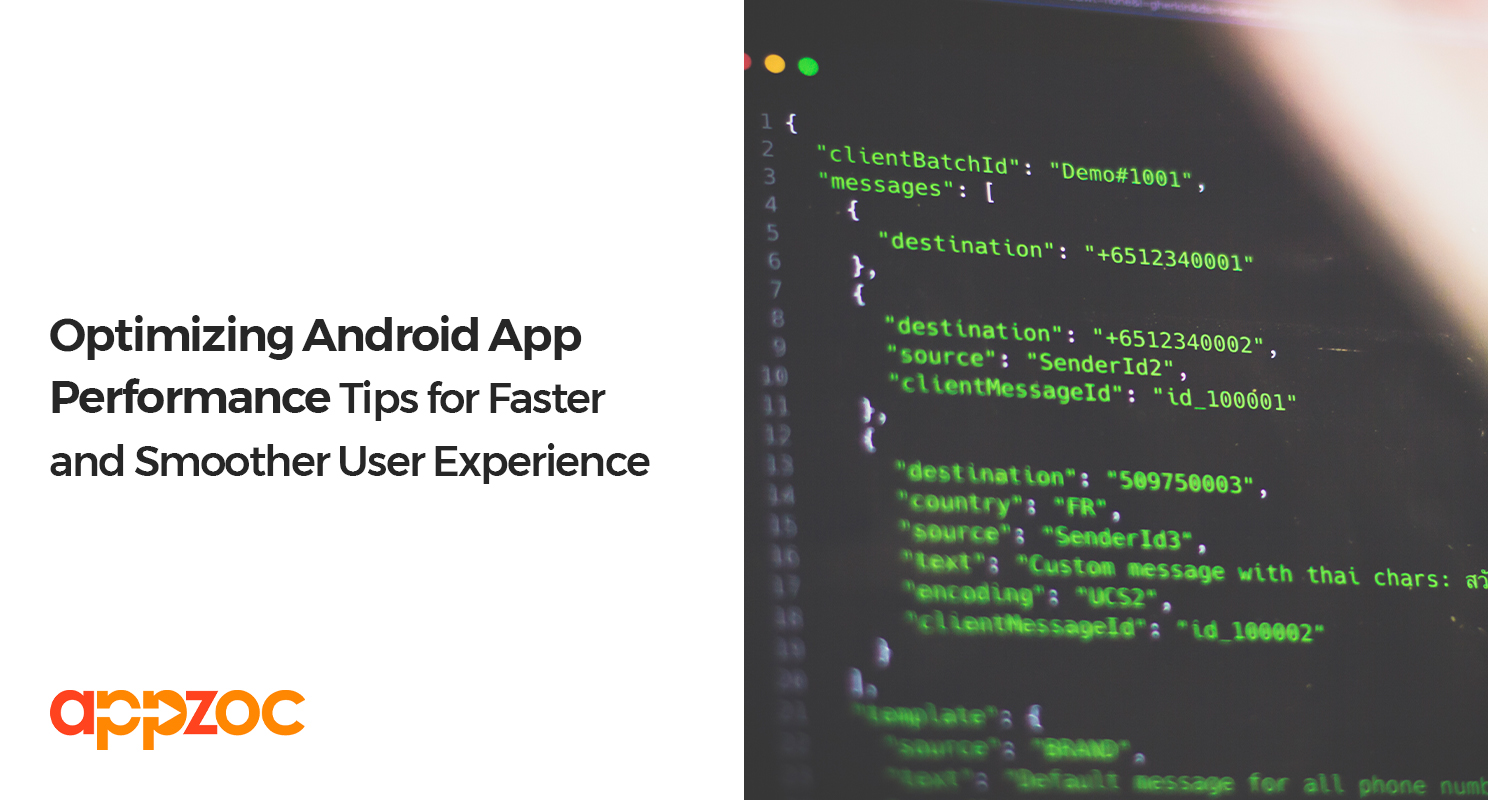
Flutter
Make the most of this cutting-edge technology by developing apps quickly! Our Flutter solutions have amazing features that can be used to create sleek, high-performance apps that can scale seamlessly across platforms.

Bugs and crashes are common when it comes to app development. 2024 presents an opportunity to address the issues regarding Android app development and to optimise the app performance, this year finds to be the perfect time. This comprehensive blog post serves to seek to elevate the app’s performance and as an ultimate guide for the Android App developers in Kochi.
This blog delves into those that ensure you stay ahead of the competition and does a detailed consideration right from the start of code optimization methodologies. Every issue is tackled head-on no matter if it has sluggish interfaces or battery drain. Let’s explore the best practices and develop streamlined code for implementing robust testing protocols.
By doing so, make 2024 the year of applications that run smoothly and distinguish yourself in the crowded app marketplace. With the appropriate knowledge and resources the ability to create lightning-fast apps is harnessed by the Android app developers.
Use Baseline Profiles
Utilising Baseline Profiles offers a higher average return visit rate and enhances the code performance. It can render an increase of speed by 30% from the first launch, and it gradually leads to more daily active users as well. It is possible to make all user interactions and responsiveness in app startup call upon smoothness from the first time they run.
Reduce the app size
Smartphones aren’t powerful GPUs and it consumes most of the global Android market share. And here’s a jaw-dropping fact – even though some of them don’t support 2G/3G, users with modestly configured mobile phones avoid downloading huge apps. So, for the users, it would be better if your app consumes less space.
Efficient Data Handling
Efficiently handling data can significantly improve your app’s performance. In your Android app, implementing lazy loading techniques is crucial to optimise performance. Using efficient data structures you can ensure a smooth user experience.
Minimise Activity Leak
When activities are not properly managed, the activity leak such as memory leaks and decreased app performance can occur. Activity leaks can be minimised with the help of an iPhone app development company, Kerala, by releasing resources when activities are destroyed, using weak references, avoiding static references, using the application context or using a memory profiler.
A startup profile can be considered
Executing a startup profile sharing similarities with the baseline profile can be made to occur during compile time. For faster app startup it is to optimise the DEX layout.
Network Enhancement
For optimising Android apps, optimising network requests is quite essential. Prefetch things that users may use and also improve app performance by editing the batch parameters.
Optimising user interface
It is crucial for your users to have in hand a seamless and swift experience which is possible with the optimisation of the user interface. Reducing the layout hierarchy is an effective way to enhance your app’s UI performance. Tips for UI optimization include Tips for user interface optimization include utilising ConstraintLayout for intricate layouts, incorporating optimising view recycling.
Consider Low-configuration Device
When developing apps has an impact on app performance with low-configuration devices. Developers should consider how to implement the best practices in optimising app startup time, utilising efficient data structures and algorithms, minimising network requests, optimising graphics and animations, and using adaptive layouts.
Optimise offline model
If you have bad network connectivity, it is highly recommended to display information in offline mode for Android app development in Bangalore. Considering performance and usability, a poor network takes you along to retrieve data. To provide a smoother user experience and enhance the overall Android app performance, you can opt for data synchronisation, sensitive data management and managing shared data.